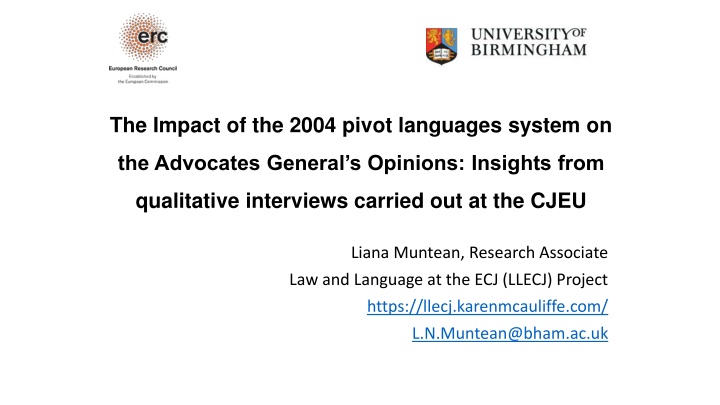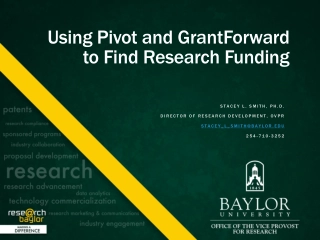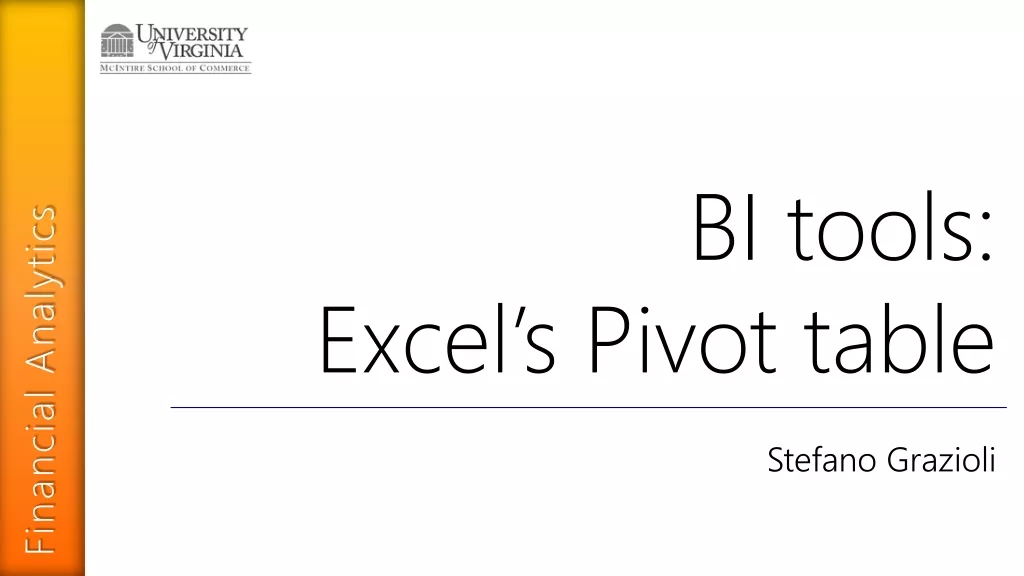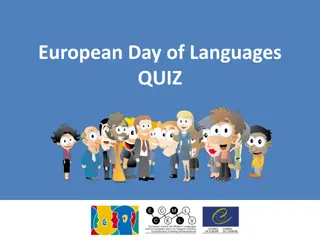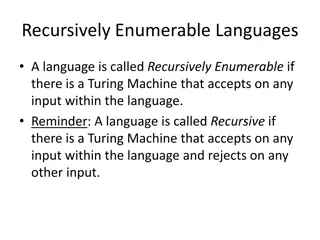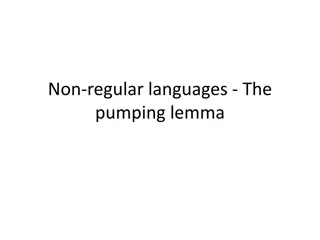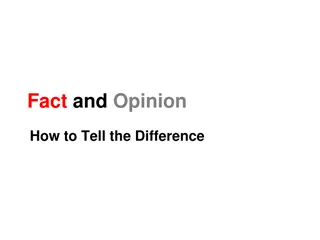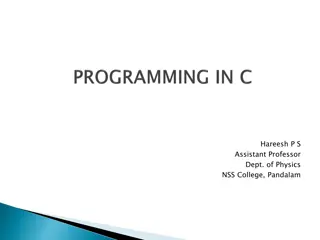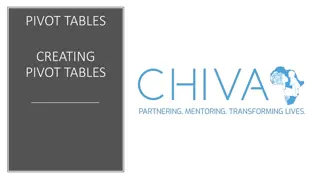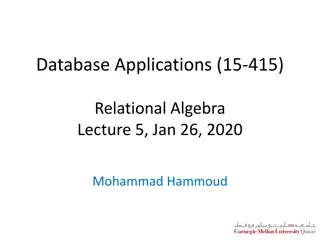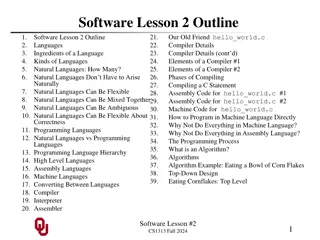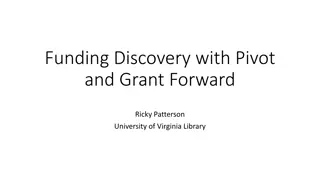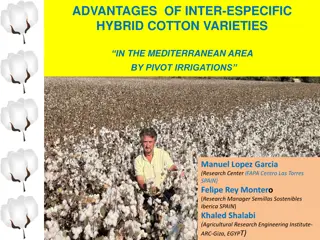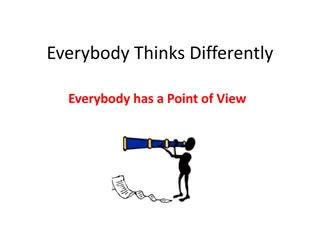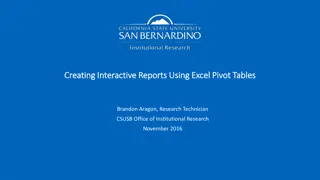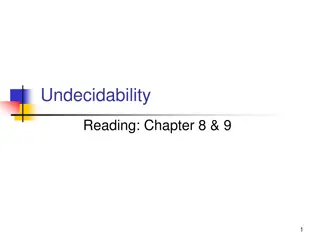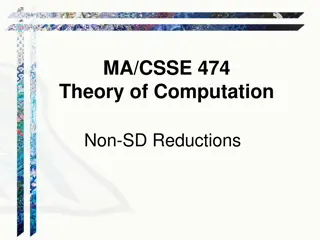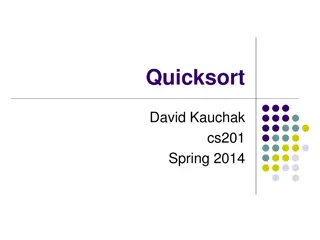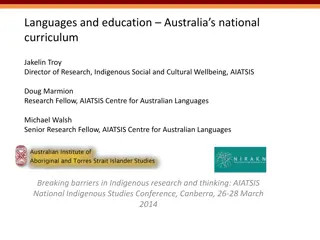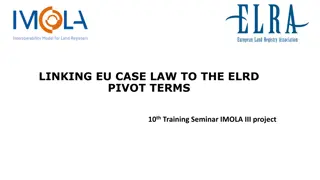Impact of 2004 Pivot Languages System on AG Opinions
Qualitative interviews at the CJEU provide insights into the impact of the 2004 pivot languages system on Advocate Generals' Opinions. The study focuses on AG opinions vis-à-vis CJEU judgments, role of language in convincing the CJEU, and more.
Download Presentation

Please find below an Image/Link to download the presentation.
The content on the website is provided AS IS for your information and personal use only. It may not be sold, licensed, or shared on other websites without obtaining consent from the author.If you encounter any issues during the download, it is possible that the publisher has removed the file from their server.
You are allowed to download the files provided on this website for personal or commercial use, subject to the condition that they are used lawfully. All files are the property of their respective owners.
The content on the website is provided AS IS for your information and personal use only. It may not be sold, licensed, or shared on other websites without obtaining consent from the author.
E N D
Presentation Transcript
The Impact of the 2004 pivot languages system on the Advocates General s Opinions: Insights from qualitative interviews carried out at the CJEU Liana Muntean, Research Associate Law and Language at the ECJ (LLECJ) Project https://llecj.karenmcauliffe.com/ L.N.Muntean@bham.ac.uk
Structure of presentation General information about AG opinions Methodology Process of production of an AG Opinion Relevant findings from interviews
AG opinions v. CJEU judgments Judgments formalistic, less personal; AG s opinions more personal, creative, unrestricted, comprehensive; jokes, sassy references; E.g. reference to the song Love is all around in the OPINION OF ADVOCATE GENERAL BOBEK in Case C-213/15 P, Commission v. Patrick Breyer, 21 December 2016: First, judicial openness is all around. If there is any common denominator to the considerably varied practice at the national and international levels, it is that the courts as institutions have been becoming more, not less, open in the last decade or two . Note 54: A sceptic might remark that it used to be love (that was all around). But then apparently something has changed (certainly with regard to public perception of courts) .
Role of language in convincing the CJEU AGs use of language as a strategic tool while assisting the CJEU - see literature review by E. Tylec for the LLECJ project for examples: Lagrange expressing difficulties in choosing a solution; Dutheillet de Lamothe - expressions of regret in choosing a particular solution; Tesauro - undoubtful statements;
Since 2004 AG Opinions drafted in pivot languages AG Opinion translated into all official EU languages Case lodged in original language EN DE ES FR IT (PL) FR + linguistic assistance
Focus of the study Whether and how AG opinions have been affected by the 2004 pivot languages Whether these opinions have become more constrained, less persuasive AG opinions - more than an individually drafted opinion
LLECJ Project Ewelina Tylec: analysis of the literature, focusing on specific (broken down) research questions Virginia Mattioli: linguistic analysis of the texts (AG opinions) Me: qualitative interview data
Methodology 23 in-depth qualitative interviews with: Advocates General Referendaires Lawyer linguists Questions: Background, role perception CJEU language system drafting/translation process (working methods, linguistic assistance, translation) case law and EU law development recruitment
Methodology (2) Anonymous interviews; Recorded; Transcribed, then approved by interviewee; Qualitative data analysis with NVivo.
Process of production of AG opinion 1st layer (AG Cabinet = 1 AG + 4 Refs) R f rendaire responsible for the first draft; AG usually intervenes in the drafting process once there is a first draft; 2nd layer Linguistic assistance Final draft sent to lawyer linguist; 3rd layer Translation lawyer linguist and/or freelancer; Publication.
Findings from interviews: the effects of the 2004 linguistic regime on AG Cabinets Interviewer: Respondent: Interviewer: Respondent: Has it affected in any way your work [ ]? No, I haven t seen any. You haven t seen? No, I haven t seen from our point of view, we haven t seen it. No. No. (Interview with AG s r f rendaire)
Drafting in mother tongue v. Drafting in non-mother tongue If you can draft in your own language, you are much more efficient and you master the language more thoroughly. I mean, in [mother tongue] I would be able to give every small nuance, every slight difference of meaning that would use the precise words. In English, I hope I draft rather well but still I m not native, so yeah, I m a bit less efficient and the result is, I hope, good, but would have been better in [mother tongue]. But hey, that s our job, that s how things work here. (Interview with AG s r f rendaire)
Theoretical view v. actual situation Yeah, for me it s inevitable that the language you use shapes a little bit the way you think. I think it s inevitable, the concept, the words. But after all, I mean, we are doing cases. It s not that I would ever imagine that by using another language you would get to a different result. [ ]if you ask me to draft an opinion in Italian, in English or in French, I could do the three, I will always come to the same result and the arguments would be the same well, you could have a small difference here and there, but the reasoning and the substance would be the same. (Interview with AG s r f rendaire)
AGs I would say you are less tempted to use sophisticated vocabulary. (Interview with Advocate General) If you do English and you ve got prose then I mean you can be slightly more, how shall I put it, concise, snappy, the language wants shorter sentences, easier structure of the paragraphs and of the statements. You do more of individual propositions and do more full stops than everywhere else and so forth with certain drafting. [ ] in French of course it might be slightly different yet again when I do that I rarely try to be shorter and comprehensible. [ ] yeah. I don t think there would be a huge difference, no. (Interview with Advocate General)
Drafting in mother tongue is a disadvantage Respondent: I don t know if you have had this response from others, but actually when it is my mother tongue it sort of disturbs the circuit in my brain. (Interview with AG s r f rendaire)
Revealing aspects observed during interviews Attitudes of R f rendaires towards their AG Strong personality of an AG Meticulous approach to draft opinions
Building up the cabinet Language skills in the cabinet International profile Academic and practitioner Different nationalities French native speaker at least one
Adapting working methods Respondent: Normally, we work bilaterally with the Advocate General. [ ] But, there is a point where somebody else from the Cabinet will also take a closer look at the case so that he will give her another opinion, drafting suggestions, structure or even legal solutions. Interviewer:That s what I was also going to ask, if you have this policies of swapping drafts to correct each other, or to review each other? Respondent: Yes, this is very helpful, we do review each other, yes. (Interview with AG s r f rendaire) We have something like a plenary. So, before the opinion is sent to the translation, we discuss in a plenary. So, me and all the r f rendaires, we are discussing paragraph by paragraph, and I assure the control over all amendments. (Interview with Advocate General)
Strategic use of language He [the Advocate General] sometimes chooses to write in English because then he thinks he can address a more broad a public. (Interview with AG s r f rendaire) He was working on a case which was, kind of, time-sensitive, and it was in international private law, which is also his speciality, and one of his r f rendaires, and then he just told him, [Name],can you just do that in [mother tongue] because we have, like, two weeks left (Interview with AG s r f rendaire)
AG opinion as a collective effort [ ] if I compare my chambers with others, we really rely on team spirit, so everyone has sometimes an input. So, it may well be that I m working together with one r f rendaire on the case, but then after the discussion, someone launches another idea that we should develop another aspect and it happens that I ask this person, So, prepare a draft of one or two paragraphs, and then we might incorporate it into the text. (Interview with Advocate General) Of course there are opinions which are useless. Sometimes you read opinions and you think, oh, that s completely useless. [ ]So some young lawyer who s just arrived, and maybe the advocate general wasn t particularly interested in that case or didn t have a lot of experience in that field. Not all the doughnuts come with a hole. And that applies to the advocate generals too. (Interview with AG s r f rendaire)
2nd layer Pivot languages impact on Lawyer linguists The pivot language [system] was a necessity with 22 or 23 languages, yeah. It was not technically possible to produce that many combinations of language. (Interview with lawyer linguist) I think it senabled the court to process because it was clearly otherwise, it would have been impossible, I think, so, I think it was [ ] a good way of dealing with this linguistic issue. (Interview with lawyer linguist) It definitely makes our work possible, because otherwise, every linguistic unit would be obliged to cover 23 languages. (Interview with lawyer linguist)
Necessary evil? I'm not very keen on it. I mean, I can see why we have to have it because there are so many language combinations and you're not going to get 30 or even 40 translators to cover all the possible combinations, so we have to do it. But it is really second best because, you know, [ ], it's another layer. And if you have no inkling of what's in the original [ ]And so it's a necessary evil, I think, doing pivot languages. We have to have it, but it's not ideal. And I think it was just accepted because people could see it had to be done. I suppose it's made things easier even if it hasn t necessarily made them better. (Interview with lawyer linguist)
Lawyer linguists perspective AG Cabinets are constrained If you work, say, in German, like some advocate generals here, you need basically to translate for yourself from French into your own language, and normally this work is not officially done by the translation team. (Interview with lawyer linguist) I understand that he writes in English so that Mr [Advocate General] can read the opinion, but I think something is lost between this way of thinking in French, writing in English, reading a translation in French from what was written in English. (Interview with lawyer linguist) It maybe influences the final outcome and the comprehension of the general public because sometimes I think that there are so many unnecessary repetitions in opinions and judgments. (Interview with lawyer linguist)
Lawyer linguists perspective FR v. EN [ ] the eternal problem with English. Everyone s using it, but hardly anyone really has a sufficient knowledge of the language to really use it in adequate manner in legal reasoning, at least, whereas French, I mean, people tend to be more self-conscious [ ] So from a strictly linguistic point of view, [ ] I expect that in 90 percent of the cases what we get is something that is, from a linguistic point of view, vastly correct, so there is not much to do. [ ] I understand, by talking to friends in chambers, by talking to colleagues from the English unit, that it s not the case for opinions drafted in English by non-native speakers. (Interview with lawyer linguist)
Extra work/role [ ] editing work comes basically on top of the translating work. And it s a very specific work on top of it. Why? Well, basically because it can be extremely time consuming when the author of the document is not at ease, or it can be extremely easy when the author of the document is perhaps not a native speaker but has had some academic background in Britain or in the USA. So there are lots of differences, so it s very difficult to predict the amount of editing work involved beforehand. (Interview with lawyer linguist) Editing has to be done how shall I say - when the stars are aligned, when the advocate general has been able to stick to his or her schedule, we have perhaps one week or ten days, but sometimes due to the constraints of the advocate general s work, they send us their first draft at a very late stage. (Interview with lawyer linguist)
Substantive contribution to the AG opinion? [ ] we serve the legal reasoning. We don t alter it. We should not alter it. We should serve it, and serving it means sometimes to make things more readable, more accessible, to reinforce perhaps the logic of the whole thing by adding or deleting words, and this is something that is not easy. You need experience in drafting yourself. (Interview with lawyer linguist) [ ] when the r f rendaire, so the legal secretary, is drafting his or her document, they use documents from a variety of sources, which have not necessarily full coherence, and when you do this editing work, you have to ensure that what is written in one document is fully coherent (Interview with lawyer linguist)
AG cabinets on what is a good lawyer linguist About substantive interventions into AG opinion: no, this goes beyond the role of a lawyer-linguist according to me. (Interview with AG s r f rendaire) I had once, twice, not more, discussions on the substance of a case and I had once, specially I remember one case where a lawyer linguist said, Well, I don t agree with what you re saying, and here, this is another argument, and I said, Well, of course, that s the opinion of the Advocate General, so your work is to translate. If you don t agree that s we can discuss it over a beer if you want, but there is nothing you can do . (Interview with AG s r f rendaire)
Lawyer linguists destroying cases [ ] we even had one situation where there were words added to our opinion, and the dispositif, the end, what we proposed was the contrary to what [ ] It was a catastrophe that one, really it was. It was probably a mistake. (Interview with AG s r f rendaire) [ ] it was a very huge, very important problem, because the French version well, the English translation said a completely opposite thing and I didn t realise it at the beginning. (Interview with AG s r f rendaire) In general, when you work with translations [ ] you will see that there are slight differences, but still in legal terms they can make a difference. (Interview with AG s r f rendaire)
Lawyer linguists saving the day? They contacted us and saying, Well, there is a problem in the translation, in the French translation on which you based your opinion, on the question [ ] it was very problematic, and we had to change of course the translation, the French section changed the translation, [ ] we had to change the opinion and the translation of the question as drafted in the opinion.And some parts also of the opinion had to be changed. Fortunately it didn t change a lot of the reasoning because if it would have been completely incorrect or the opposite side, we would have probably had to hold on the opinion and draft again or but nevertheless, that was as we were informed very late also in the process, it was a real panic at that time and also the other language sections of the translation department of the Court, of course, had to change their own translation. (Interview with AG s r f rendaire)
Freelancers & Translations Respondent: I think there is less of revision going on there and there is more of workload [ ] And they outsource more than before, that's for sure. If you look at numbers, they translate more and more and more and more and we produce more and more judgements and opinions, more and more. It's just that they can skip revision [ ] And they can outsource. Interviewer: So you think there was more revision before? Respondent: Yes, of course. Of course. [ ] Everything was revised. [ ] And things were revised twice after 2004 in translation, even twice. During a couple of first years, I would say, the first five years everything was revised by two people. Now sometimes there are no revisions at all and it's a freelance translator who does the translation and (whistles), it goes through. (Interview with AG s r f rendaire)
Quality of translations Interviewer: freelancer doing the translation? Can you spot the difference when it's a Respondent: But yeah, so the quality, I think, in the longer run the quality of the translations will be a problem, yeah. Or is a problem already. I can tell you that the translation of legal acts, legislative acts, is very problematic. That is my experience. (Interview with AG s r f rendaire) I think you would. I think you would easily, yes.
Conclusions AGs and r f rendaires are constrained The quality of opinions/translations is affected Pivot system adds an extra layer of uncertainty Awareness about these changes Triangulation and Linguistic analysis Other factors and their effects on courts in general Persuasiveness and agendas for EU law and EU policies Transparency
